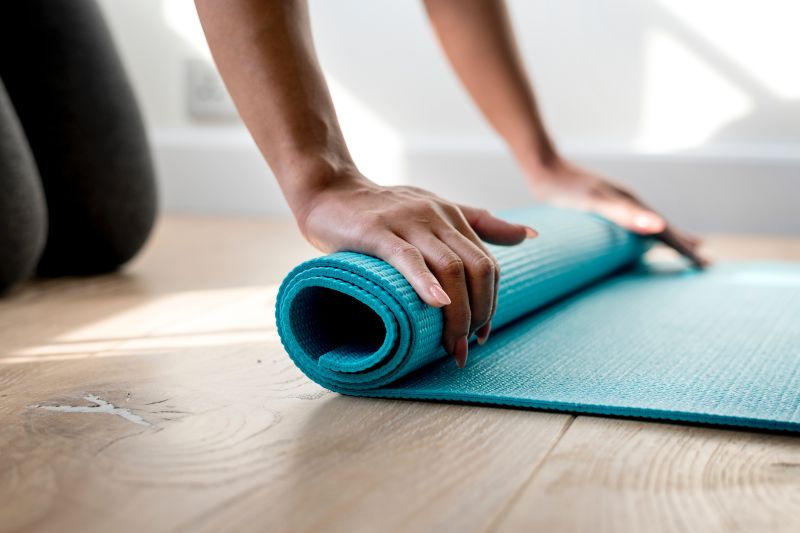I
f you’ve flown commercially, you’re undoubtedly familiar with standard safety procedure. It goes something like this: In the event of a loss in cabin pressure, secure your own oxygen mask before helping your children or others. The reason is simple and practical; a deficiency in the amount of oxygen reaching your brain (hypoxia), will render you useless.It is critical to take care of ourselves first in order to be able to take care of others. Beyond flying, the principle has application in daily living.
What first comes to mind when you consider what it means to take care of yourself? Diet? Exercise? A creative outlet, cultivating a hobby, or indulging in a day at the spa? Mental well-being?

All of these are important, true, but there’s something else so critical it is potentially life-saving: hearing what your body is trying to tell you.
Are you listening?
For years I struggled with insomnia. I chalked up my sleeplessness to age, hormones, stress, you name it, but I never considered I might be hurting myself by ignoring the issue. While I suspected I suffered from an actual sleep disorder, I kept holding out that over time my issue would resolve itself. (Spoiler: It never did.)
When I finally got around to talking to a doctor who specialized in sleep-related issues, I learned there were reasons to be concerned about my insomnia. If I had sleep apnea, I was at greater risk for high blood pressure, heart disease, stroke, atrial fibrillation, Type 2 diabetes, and hormone fluctuations resulting in cravings for carbs and sweets.
After a little education, I realized my body had been practically screaming at me to pay attention. Routinely, I was waking up from frantic dreams and sometimes nightmares, often including alarms, sirens, and even occasionally me screaming at myself to WAKE! UP!
Once roused from sleep, I’d find myself out of breath with my heart jack-hammering like I had just run a marathon. It (slowly) dawned on me these dreams were my body’s way of telling me I needed to breathe.
My body may as well have been shouting Danger, Will Robinson! because I had literally stopped breathing long enough to deprive oxygen to my brain and raise my blood pressure.
Ignoring the warnings wasn’t just stupid; it was potentially dangerous and even life-threatening. In addition, there have been studies linked to sleep deprivation as a possible cause for Alzheimer’s.

The thing is, especially when you’re younger, you don’t expect a “worst-case scenario.” But you and I are always our best advocates for our own health. We cannot be satisfied with hearing what we want to hear just because it’s good news.
My sweet, young friend Stephanie died in her early twenties leaving behind a newborn, because her doctor had dismissed an ongoing issue she experienced while breastfeeding as something to do with a blocked milk duct when, in actuality, she had an aggressive form of cancer.
One Friday morning another friend, Louann, at the time a mama to two young toddlers, woke up and couldn’t see. While alarmed, this otherwise very smart nurse-friend of mine dismissed it due to work fatigue, the stresses of little sleep and family demands, and a pile of other reasonable excuses.
Knowing the hospital she worked for was at capacity, consequently diverting patients to other area hospitals, she decided to wait until Monday to be seen.
A fascinating long story short, Louann discovered she had pseudotumor cerebri (PTC), aka benign idiopathic intracranial hypertension (IIH), a rare condition more commonly found in morbidly obese or younger patients (she wasn’t the least bit overweight and was in her mid-thirties at the time).
Though her blindness showed up overnight, her body had been warning her for years. She had experienced daily headaches she learned to live with, always dismissing them due to the stresses related to work and home.
Thankfully, Louann’s story has a happy outcome: defying her doctors’ prognosis (and in answer to prayers offered around the globe), her eyesight returned in part, enabling her to function normally, take care of her children, and continue driving.
Louann’s experience has made her a passionate advocate for taking care of yourself and listening to what your body is telling you. Had she listened to early warning signs—chronic, at times debilitating headaches—her vision wouldn’t be impaired today.
While it might be tempting to point a condemning finger toward me or Stephanie or Louann for not acting more quickly when experiencing warning signs, most of us have dismissed a health concern until it became a much bigger deal than it ever needed to be.
Sometimes we just don’t want to hear what our body is saying.
Take charge of your life and health, friends. Put your oxygen mask on first. Take care of yourself so you’ll be able to help care for others for a long, long while.



